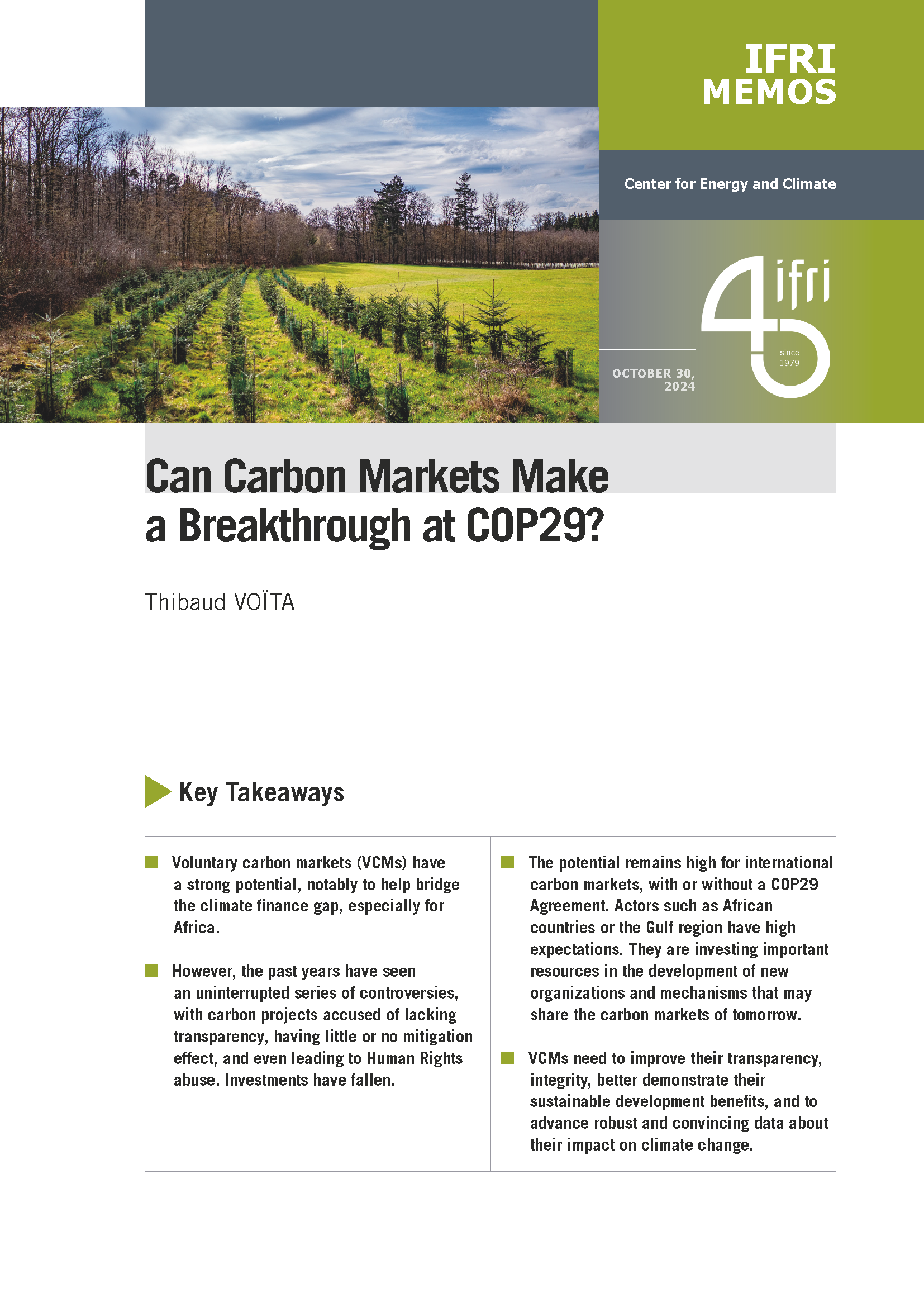Can carbon markets make a breakthrough at COP29?

Voluntary carbon markets (VCMs) have a strong potential, notably to help bridge the climate finance gap, especially for Africa.

However, the past years have seen an uninterrupted series of controversies, with carbon projects accused of lacking transparency, having little or no mitigation effect, and even leading to Human Rights abuse. Investments have fallen.
The potential remains high for international carbon markets, with or without a COP 29 Agreement. Actors such as African countries or the Gulf region have high expectations. They are investing important resources in the development of new organizations and mechanisms that may share the carbon markets of tomorrow.
VCMs need to improve their transparency, integrity, better demonstrate their sustainable development benefits, and to advance robust and convincing data about their impact on climate change.

Available in:
Themes and regions
ISBN / ISSN
Share
Download the full analysis
This page contains only a summary of our work. If you would like to have access to all the information from our research on the subject, you can download the full version in PDF format.
Can carbon markets make a breakthrough at COP29?
Related centers and programs
Discover our other research centers and programsFind out more
Discover all our analysesPlacing the EU on a Warfare Footing: Energy and Raw Materials Priorities for 2026
The year 2025 has confirmed that one must prepare for much worse in the field of geopolitics and geoeconomics as the intensity and frequency of shocks increase and as the European Union (EU) has no more stable flanks now that crises with the United States (US) become so frequent and reveal a systemic rift. In the world, barriers to trade multiply and dependencies are weaponized.
Brazil One Year Away from the October 2026 General Elections
Brazil’s general elections will be held on October 4, 2026, to elect the president, vice-president, members of the National Congress, governors, deputy governors and state legislative assemblies. For the presidential and gubernatorial elections, a second round will be held on October 25 if no candidate obtains a majority of the votes in the first round.
COP30: An Inflection Point for Climate Action and Governance
The 30th Conference of the Parties (COP30), opening in Belém, Brazil, on November 10th 2025, convenes at a perilous moment.
The Strategic Dimension of Skills in the Clean Industrial Deal
In the competitiveness and energy transition battles, the European Union (EU) must master a determinant factor: skills.











